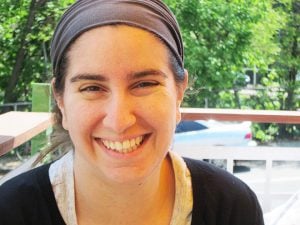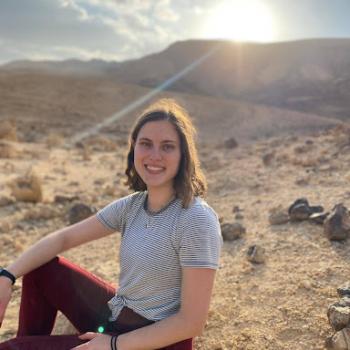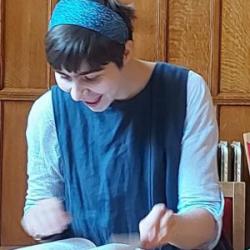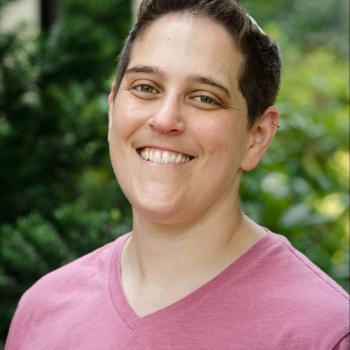 Parshat Ha’azinu (Deuteronomy 32:1-52)
Parshat Ha’azinu (Deuteronomy 32:1-52)
By Rabbi Avi Strausberg
When my wife and I were developing the language of our ketubah, a rabbi offered us an important piece of advice: think seriously about the people who you choose as witnesses for your ketubah. If and when, 5, 10, 20 years down the line, things become difficult in your marriage, should you begin acting toward one another in ways that are hurtful, thoughtless, perhaps even cruel, these are the people that will remind you who you once were to each other. They will bear witness to the relationship and love that you once shared and they will remind you, that even should the marriage come to separation, that you must still treat the person before you with care.
It may feel dispiriting, even cynical, that in the beginning, at perhaps what felt like the height of our love, we were advised to imagine the potential, perhaps inevitable difficulties that lay ahead. But consider the words of philosopher and writer Alain de Botton, “…the start of a relationship is not the high point that romantic art assumes; it is merely the first step of a far longer, more ambivalent, and yet quietly audacious journey on which we should direct our intelligence and scrutiny.” Or in the words of Krista Tippett in her podcast “On Being” in which she interviews de Botton, “The real work of love is not in the falling but in what comes after.”
The witnesses we chose for our ketubah were not just arbitrary names on a document, people we happened to be close to at a random point in our lives. No, they stood for something much more. They would bear witness to the beginning of our relationship, to a time when we saw and treated each other with nothing but love and if and when things should take turn, they would help bring us back to that place of decency and respect.
In this week’s parsha, Parshat Ha’azinu, Moshe prepares the people for the next step in its relationship with the Divine and the Israelites’ entry into the long-awaited promised land. With elegant words of poetry, Moshe begins, “Give ear, O heavens, let me speak; Let the earth hear the words I utter!” He calls the heavens and the earth as witnesses to his words to B’nei Yisrael.
In what way do the heavens and earth serve as witnesses to this interaction between Moshe and the people? The 11th century commentator Rashi suggests that the heavens and earth are being called to serve as formal witnesses to Moshe’s warning to Israel. Should the Israelites not heed Moshe’s words, should they turn aside from God and worship alien gods, the heavens and earth will not only bear witness that B’nei Yisrael has been formally warned but they will, in fact, be the instruments of their punishment. In perhaps one of the most striking visual images of the Torah, we read, “The heavens will turn to bronze and the earth shall be like iron.”
I want to suggest an alternate, and perhaps less doomsday reading, of the role of the heavens and the earth. The story between B’nei Yisrael and the Divine is a love story. They fall in love and in a passionate display of fiery romance, thunder and lightning abound, they confess their commitment to each other at the top of Mount Sinai, which serves to symbolize God and Israel at the height of their love. And, yet, as de Botton reminds us, the start of a relationship is not its high point. Rather, the real work of love is what comes after.
As in all relationships, there will be highs and lows. God and B’nei Yisrael will both try to change each other, sometimes succeeding, sometimes failing. There will be hurt feelings and misunderstandings. At various points, both God and B’nei Yisraelwill feel unseen and underappreciated. There will be yelling and unkind words, turned backs and cold shoulders. There may even be the occasional plague that kills tens of thousands of people. That’s where the heavens and earth come in. We need witnesses who will accompany us on this quietly audacious journey; we need people who will hold our feet to the fire and make us listen even when it’s difficult, who will make us see even when we’d rather not.
As we read the words of Ha’azinu this week, and as we think about the love of the Divine and B’nei Yisrael, let’s turn to the hard work of love in our lives. May we remember that all love comes with highs and lows, moments in which it is easy to love and times in which it is hard. And may we be so fortunate, when we forget how to be kind, to have good souls in our lives that can serve as witnesses to the people we need (and want) to be.
Rabbi Avi Strausberg, a 2015 graduate of the Rabbinical School of Hebrew College, is the Director of National Learning Initiatives at Hadar and the creator of the Daf Yomi haiku blog inhaiku.wordpress.com.
 Learn more about Hebrew College’s rabbinical and cantorial programs on November 12, 2018 at Ta Sh’ma (Come & hear), a Fall Open House & Day of Learning for prospective rabbinical, rav-hazzan and cantorial students.
Learn more about Hebrew College’s rabbinical and cantorial programs on November 12, 2018 at Ta Sh’ma (Come & hear), a Fall Open House & Day of Learning for prospective rabbinical, rav-hazzan and cantorial students.
















